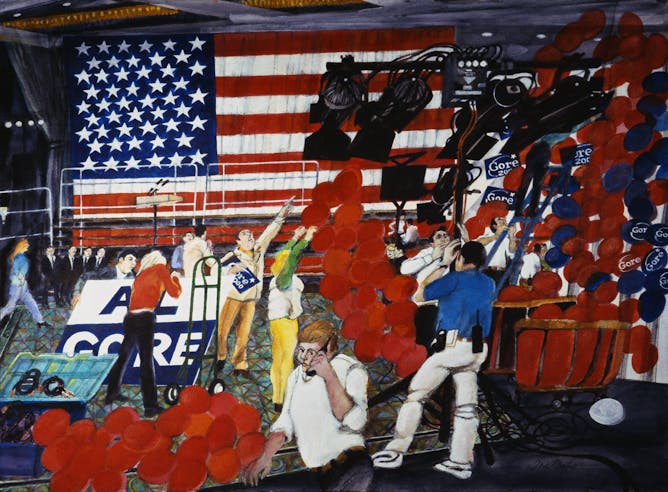|
Welcome to Sunday. Our top five stories of the week are listed below.
This weekend, Jews around the world are celebrating Rosh Hashana, the first of the High Holy Days. During a pandemic marked by deep uncertainty and loss, such traditions can offer reassurance – even as the observances themselves evolve. In an archival piece worth another read today, psychiatrist and ethicist Ronald Pies of Tufts University writes about the universal ethical truths at the core of Rosh Hashana and Yom Kippur, such as “how all
people can become better human beings.”
|

Masks Up, Surf City, banner campaign in Huntington Beach, Calif.
Genaro Molina/Los Angeles Times via Getty Images
Nicole Hassoun, Binghamton University, State University of New York
Many of us believe that outrage is an appropriate response to what appears to be a selfishly motivated refusal to wear a mask, but is it?
|

With rare exceptions, like the 2000 presidential election, the winning candidate usually declares victory on election night. But the win isn’t actually certified until January.
ranklin McMahon/CORBIS/Corbis via Getty Images
Amy Dacey, American University
No, it's not the TV news networks. The American election certification process is a lot more complicated than that.
|
|
|
-
Jenna Drenten, Loyola University Chicago
Increasingly outlandish gender reveal parties align perfectly with the values of an economy that's always scrolling for the next best thing.
|
|
|
|
-
Mark Evely, Wayne State University
A funeral director explains how the bodies of the deceased are prepared for burial or cremation in the United States.
|
|
|
|
-
Lori Kogan, Colorado State University; Shelly Volsche, Boise State University
Since women see men who own pets more favorably, you'd think online daters with cats in their profile pics would get more matches...
|
|